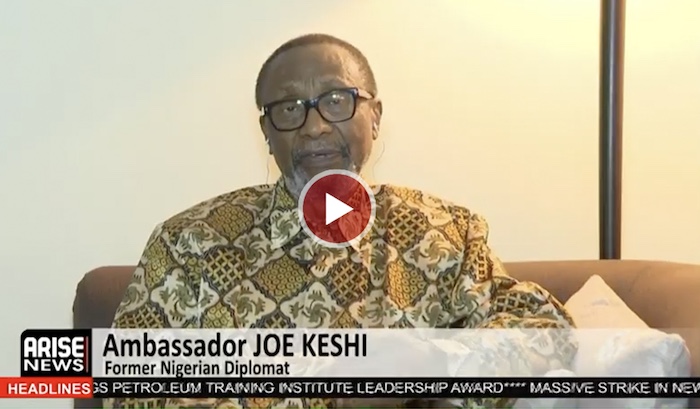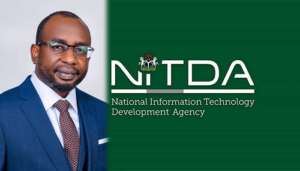Former Nigerian diplomat, Ambassador Joe Keshi, has criticised the government’s handling of the country’s security challenges, saying authorities have failed to demonstrate the capacity to stop widespread killings and religiously motivated attacks.
Speaking in an interview on ARISE News on Thursday, Ambassador Keshi said he shared the concern of Bishop Matthew Kukah over calls by some foreign groups urging the United States to place Nigeria back on its list of Countries of Particular Concern (CPC) over alleged persecution of Christians.
“I sincerely share the concern of Bishop Kukah,” he said. “But the point that I think we need to make very clearly is that this is not the first time Nigeria finds itself in this position. Even in 2009, the same recommendation was made to the State Department.”
On the country’s worsening insecurity, Keshi said the government had not shown sufficient will to confront the killings. “The truth of the matter is that Christians are being killed. The truth of the matter is that the government itself has not shown that capacity even to adequately deal with the matter.”
Citing past incidents, he said, “Take, for instance, the Deborah Samuel case. The president publicly asked the Inspector-General of Police why no one had been arrested. Days later, the IGP announced that 26 people had been arrested. Till today, nobody knows what happened to those 26 people.”
He added that the lack of accountability undermines Nigeria’s credibility abroad. “If you tell a committee in the United States that you’ve arrested suspects, they’ll ask when the trial took place. If months have passed without a trial, how do you justify that?”
He recalled how Nigeria had previously avoided being listed after diplomatic engagements. “Fortunately, as Department Secretary in the Ministry at the time, I was on my way to Washington for a meeting and asked for an appointment to meet the group that made the 2009 recommendation. Their concerns were expressed to us, and we made a deal that they needed to come back and talk to more people in Nigeria to have a clearer picture of what was going on. They came, and that eventually removed Nigeria from the list in 2009.”
Ambassador Keshi warned that unless Nigeria ends the killings and insecurity within its borders, the nation would continue to face international scrutiny. “If we do not find a way to end the killing and insecurity in this country, this issue will continue to occur. It behoves on us as a country and our leadership in particular to find a way to end the insecurity in the country.”
He called for stronger diplomatic engagement, stressing that Nigeria must not isolate itself from global affairs. “We can’t just stay believing that we live in a world of isolation. No, we do not live in a world of isolation. The world is today a global village.”
Keshi also noted that Nigeria’s weak diplomatic presence in Washington had worsened its image. “Today, we do not have an ambassador in Washington to counter this when it started. Our diplomatic structures are very weak, and these are some of the things we need to strengthen. If we consider ourselves a leader within the global community, we must act like one.”
On the question of whether the current US administration is open to diplomatic dialogue, Keshi said, “I think they are open. If my information is correct, there is a Nigerian delegation in Washington today trying to engage the United States. But it’s not just about public diplomacy. Diplomats also work behind the scenes, getting friends in Washington to reach out to key members of the administration.”
He lamented Nigeria’s declining influence abroad, contrasting it with the past. “During President Obasanjo’s era, for instance, we had friends we could call upon to help open doors in Washington or the White House almost instantly. I don’t know if that reach still exists today.”
Calling for a comprehensive overhaul of the country’s foreign policy apparatus, the former diplomat said, “Washington practically does not work without lobbyists. We need to strengthen our diplomatic structure in that city. When you look at the diplomatic list in Washington, some countries assign up to 15 officers to cover Congress, while Nigeria assigns one. Who do you think will achieve more results? The country with 15 officers, of course.”
Keshi further criticised the military for its slow response to prolonged insecurity. “We’ve never found the sponsors or suppliers of arms and logistics for these criminals. We will keep facing the same problem if we don’t find a way to end the killings. The military keeps announcing that it has killed hundreds of bandits, yet insecurity persists. So how many bandits are there? It’s becoming a failure on the part of the military.”
He called for urgent, decisive military action, saying, “If the leadership must declare war on bandits and clear them out within three months, so be it. This is affecting our economy and livelihoods. It’s not just about the United States listing us as a country of concern. It’s about us taking responsibility. The military is well-paid and well-equipped. Can they not commit to ending insecurity by next year? Can the military give us that assurance?”
Ambassador Keshi concluded by urging Nigerian leaders to act decisively. “It should not even come up anymore. There’s no way you can explain it. You have a military that is relatively well looked after. You have a military that the leadership is well paid. So why can’t they just take the side of the military on their own and look? This must not go beyond a certain period.”



